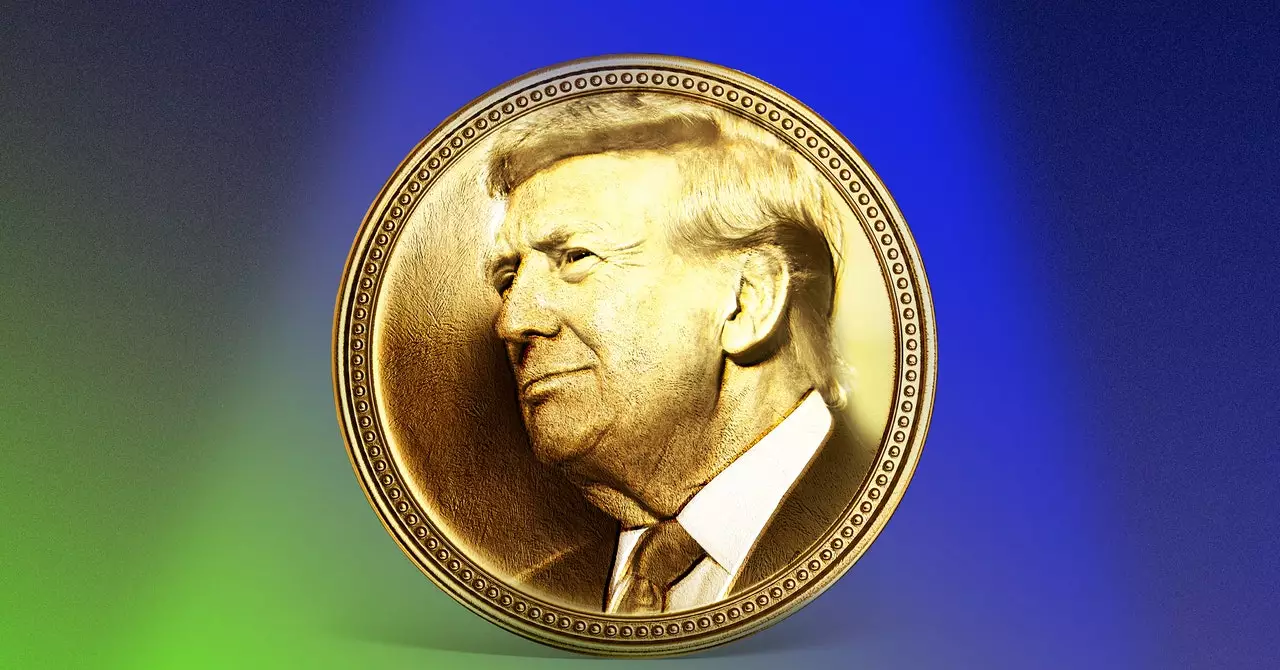In an unexpected twist, former President Donald Trump, who previously branded Bitcoin as a “scam,” has embraced a pro-cryptocurrency stance. Over the past few months, his rhetoric has shifted dramatically, culminating in his appearance at a Bitcoin conference in Nashville, Tennessee, where he boldly declared his ambition to transform the United States into the “crypto capital of the planet.” This newfound enthusiasm suggests a radical pivot in his public persona, as Trump positions himself as the self-proclaimed “crypto president.”
Such political maneuvers are not uncommon in contemporary politics, where narratives and platforms can change based on public sentiment and the potential for electoral gain. Trump’s appeal to the cryptocurrency community might be strategically timed, as he seeks to galvanize support amongst a demographic that often champions innovation and technological advancement. By proposing the establishment of a national “bitcoin stockpile” should he regain office, he is attempting to align himself with a rapidly growing and influential sector.
Amid considerations of creating an official Trump-linked cryptocurrency, the market has been flooded with memecoins inspired by the former president. These tokens have emerged as barometers for Trump’s standing in the political sphere, responding rapidly to fluctuations in his popularity and political fortunes. For instance, the DJT token, launched in June, saw a dramatic surge attributed to speculation about its ties to Trump’s family.
However, this volatility illustrates a concerning trend within the cryptocurrency market, where influence can be swayed by mere rumors and public perception. The DJT token’s collapse, plummeting 90 percent after a massive sell-off by an anonymous trader, underscores the inherent risks of investing in cryptocurrencies that heavily rely on celebrity appeal rather than fundamental value. As the crypto landscape becomes increasingly intertwined with political branding, the question arises: can these tokens withstand the scrutiny and volatility inherent to both politics and cryptocurrency?
Trump’s foray into the decentralized finance (DeFi) space with the launch of World Liberty Financial signals a bold ambition. However, this venture enters a market already saturated with established players such as Aave and Compound, which raises concerns about its ability to carve out a distinct niche. Despite the crowded market, some industry experts believe that the Trump brand’s vast reach could serve as a unique selling proposition.
Zach Hamilton, founder of crypto startup Sarcophagus, posits that Trump’s significant platform provides an unprecedented opportunity for marketing, positioning World Liberty Financial to potentially capture the attention of the masses. Yet, the challenge lies in translating that attention into a stable and trustworthy financial platform. While the publicity surrounding the launch is beneficial, the DeFi sector’s complexity necessitates a level of expertise that is critical for success. As history has shown, half-measures and branding exercises can quickly falter in the digital finance world.
The reaction from established players in the DeFi sector is mixed; there’s a sense of cautious optimism and a recognition of the potential upsides of having a high-profile figure like Trump involved. Yet there’s also an underlying apprehension regarding the reputational risks associated with the Trump brand—a brand that is as controversial as it is powerful. Brad Harrison, CEO of Venus Protocol, emphasizes the significance of technical acumen in navigating the multifaceted DeFi landscape.
Moreover, the political alignment of the cryptocurrency community is becoming increasingly pronounced. Jacob Silverman, coauthor of “Easy Money,” notes that the crypto industry is developing an increasingly right-wing Republican identity, reflecting a shift in donor dynamics. As the political arena becomes more entangled with financial systems, the implications for future electoral cycles could be profound.
In the end, Trump’s engagement with the cryptocurrency space may represent more than a financial venture—it could serve as a strategic backup plan in the event of political setbacks in the upcoming election. A raucous reception from supporters at the Nashville crypto conference may have instilled in him the notion that a lucrative second act in this rapidly evolving sector could be within reach. As both politics and finance intertwine further, the ramifications of Trump’s involvement in cryptocurrency could shape not only his future but the industry’s trajectory as a whole.

